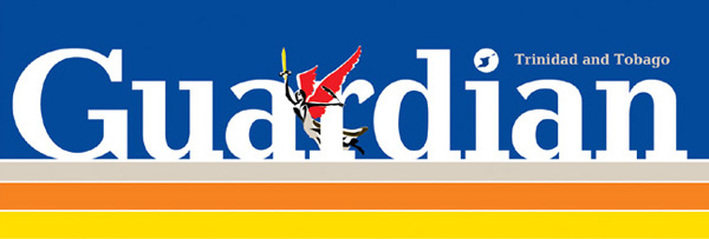Wherever possible Winer traces the etymology of our local words but because modern Trinbagonian English has many words connected to Amerindian, Indian, and African language families, limited written records for these language families can make it difficult to establish the etymology of certain words. This is less the case for words connected to European families.
This Thursday, April 11, the Department of Behavioural Sciences at UWI, St Augustine is holding a post-graduate research conference entitled Understanding the Caribbean. It’s a chance for some students to gain professional experience of public speaking and disseminating their research. In thinking about a university conference it’s worth playing the etymology game.
What might the etymology of the term “conference” suggest was the original sense of the term and what is its contemporary usage? Prior to the 1500s the word meant “to summon.” Post 1500s the meaning changes somewhat to the “the act of conferring.” The modern meanings of “confer” are quite obvious. 1. To consult and compare; and 2. to bestow a title, prize or honour on someone.
The first sense of the term implies community. “Confer,” from its earliest origin to now, always included bringing people together, first as a summons, and later to “compare, consult, deliberate, and talk over.” The second sense of the word—power over others—implies authority.
Just as the sense of “conference” and “confer” have both changed yet retained echoes of their original character, we might ask if the same can be said about another institution founded on the notions of bringing people together for discussion and for bestowing titles—the public university? And who’s own etymology stems from medieval Latin through to Old French, moving from “a corporation or society” to “a community of masters and scholars” to what it might mean today.
In 1967 at the University of Chicago, a committee was convened to report on what was to be a university’s role in political and social action. Disseminated as the Kalvern Report, it’s authors produced what for some is one of the best expressions about the mission and values of a great university.
Its key points, and I paraphrase, were that: “A university has a unique role in fostering the development of social and political values in a society. The role is defined by the characteristics of the university as a community. The mission of the university is the discovery, improvement, and dissemination of knowledge. To be faithful to its mission means challenging social values, policies, practices, and institutions.
“By design and by effect, a university is the institution which [should] create discontent with the existing social arrangements and propose new ones. The instrument of criticism is the individual faculty member or the individual student. The university is the home and sponsor of critics; it is not itself the critic. To be true to its faith in intellectual inquiry, it must embrace, be hospitable to, and encourage the widest diversity of views within its own community.”
Obviously we live in changed times. Finance and other considerations mean a university has distinct pressures now and many administrators increasingly treat it as a corporate entity first and foremost. Yet within the changes can still be made the argument that university conferences should foster a space for academics, students and members of the public to consult as a community and discuss wide differences in opinions, interests, and research foci.
At Thursday’s post-graduate conference, the mission may not be as high-minded as the Kalvern Report suggested it might be. That said, there will be a wide diversity of presenters and panellists who are current grads, post-grads, academics and professionals. The topics of the panels are wide ranging, regionally focussed, and include: society and sexuality; family relationships; intervention and crime prevention; the state and citizenship; works and organisations and many others.
All the panels are comosed thematically to create discussion across disciplines. And there will be breaks to compare, discuss and consult. Please join us in the audience. Admission is free to all and the conference runs from 9 am to 4 pm at the Learning Resource Centre.
http://www.guardian.co.tt/columnist/2013-04-08/understanding-caribbean

 RSS Feed
RSS Feed